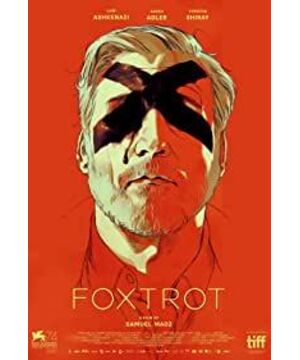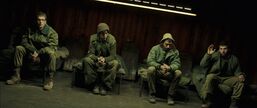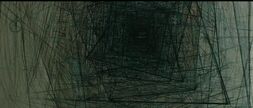It is not the first time that director Samuel Maotz has dealt with anti-war themes. Compared with his predecessor "Lebanon", "Foxtrot" is much more euphemistic. The tone outlines a middle-class Israeli family, looking at the big from the small, reflecting on the trauma of the war on the family and the individual. The three-part structure of the whole film uses Jonathan's boring life stationed at the border to insinuate the ruthlessness and absurdity of the war, and highlights the ridiculousness of the "Oolong funeral" incident at the beginning. The four soldiers stationed at the border lived like prisoners, and the camera pan slowly swept across their faces in the way they were shot, as if someone not in the picture was watching them. The special thing is that the life of his father Feldman is revealed with Jonathan's hand-drawn cartoons. The "✖" on the eyes with tape is rich in metaphors, and the tears flowing under the tape are also very moving. The end part is from the perspective of mother Daphna, the scar on her right finger joint echoes the injury on the back of her father Feldman's left hand. After the two are reconciled, the film draws to a close. Against the backdrop of a warm atmosphere, it ends with Jonathan being in a car accident on his way home, which is really unexpected. In the picture of the car crashing and killing people, the background music is always in a soothing tune, which seems to try to restrain the emotions; similar to that, in the middle of the film, when the vehicle of the manslaughtered person is buried, the huge crash that pushes the vehicle into the pit is not heard. Come, the background music also stopped, and it was completely silent, but it was very infectious.
View more about Foxtrot reviews











